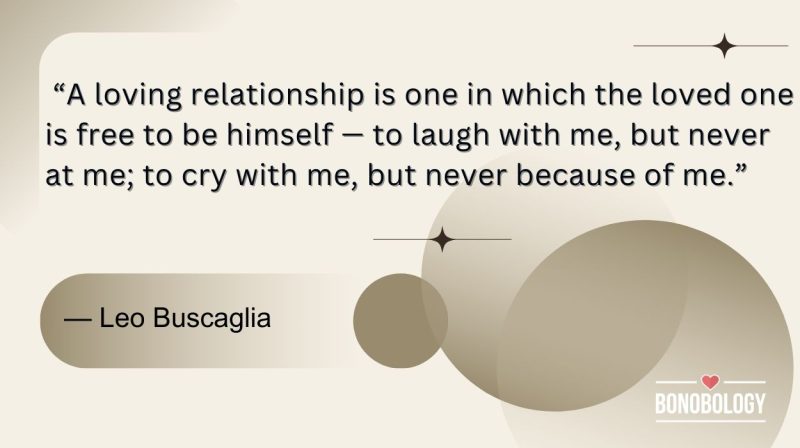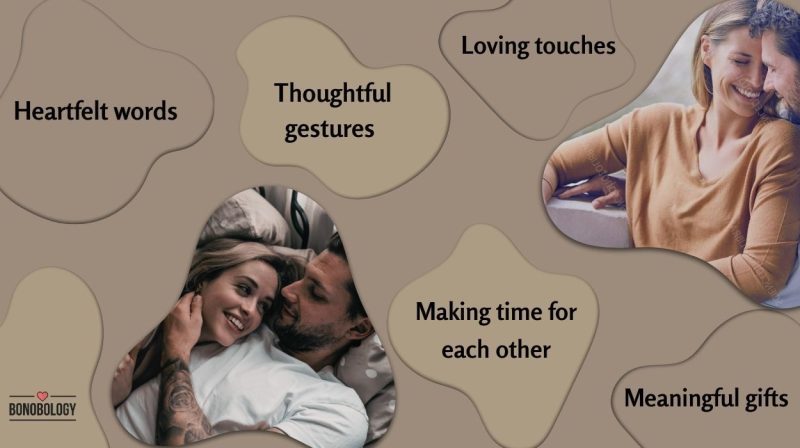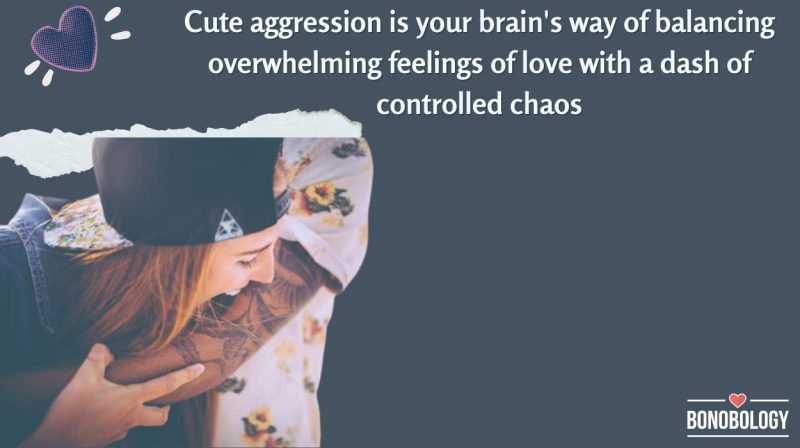Trust is the bedrock of any healthy relationship. So, if you’re working on how to build trust in a relationship, you’re off to a good start. At its core, trust means feeling safe enough with your partner to be open and vulnerable without fear. Psychologist Sabrina Romanoff describes it as ”relying on another person because you feel secure they won’t hurt or violate you”. In other words, trust forms the strong foundation on which intimacy and love are built. When you have it, there’s a sense of comfort, loyalty, and emotional safety between you and your partner. You both can “let your guard down and be vulnerable with each other,” which deepens your connection.
Building trust doesn’t happen overnight. It’s a continual process requiring consistency and care from both partners. The good news is that trust can be nurtured intentionally. We will show you how to build trust in a relationship through actionable strategies grounded in psychology and real-world research. We’ll cover core principles like open communication, reliability, transparency, empathy, healthy boundaries, and more. By applying these tips in your daily life, you can gain trust in a relationship that feels secure, loving, and resilient for the long term.
Before we dive in, remember that every relationship is unique. Use the strategies below as general guidelines on how to work on trust in a relationship, and adjust them to fit you and your partner’s needs.
Why Building Trust In A Relationship Matters
Table of Contents
Why is trust so important? For one, it brings closeness and emotional safety in relationships. When you trust each other, you know you have each other’s backs, which creates a secure space to share your true selves. Trust also contributes to long-term stability; a relationship built on trust can better survive trials and withstand the test of time. On the flip side, a lack of trust breeds negativity and anxiety. Constant doubt or suspicion can fuel insecurity, conflict, even depression, eroding the happiness you share.
1. Promotes closeness & reduces conflict
Trust allows partners to feel safe with each other, making it easier to navigate disagreements constructively. Here’s why:
- When you truly trust your partner, you’re more likely to give them the benefit of the doubt and work together to resolve conflicts, rather than viewing each conflict as a threat
- Even if one of you slips up, a trusting couple can overlook minor shortcomings because deep down you believe in each other and know you have each other’s back
This mutual confidence creates a positive, cooperative atmosphere instead of constant conflict.

2. Enhances emotional well-being
A lack of trust often leads to stress and insecurity. On the other hand, a trusting relationship brings peace of mind. Why is that?
- If you’re constantly worrying whether your partner is honest or committed, it can take an emotional toll, fueling anxiety, fear, or even depression
- On the contrary, trust makes you feel secure and supported, which reduces anxiety. Knowing you can rely on each other provides comfort and emotional stability
In a very real sense, trust comforts us; it’s hard to relax or be happy in a relationship when trust is missing.
Related Reading: Is He Shy Or Not Interested? 26 Ways To Tell The Difference
3. Strengthens your connection
As the cliche goes, and rightfully so, trust is the foundation of a strong bond. Being dependable and true to your word deepens intimacy over time.
- Each time you follow through on promises or support your partner, it’s like adding a brick to the foundation of the relationship
- Researchers find that couples who maintain trust enjoy greater closeness and are more resilient together in the face of challenges
- In contrast, signs of broken trust eat away at intimacy
When you consistently show up for each other, you build a solid, long-term trust that makes your partnership feel safe, loving, and able to weather any storm. Now that we’ve seen why trust matters so much, let’s look at how to build trust with your partner using practical strategies you can start applying today.
Trust is the glue that holds a relationship together. It promotes emotional safety and closeness, keeps negativity at bay, and gives your partnership a strong foundation for the future.
How To Build Trust In A Relationship
Building trust day-to-day comes down to concrete behaviors. Below are key strategies to work on trust in a relationship. For clarity, we’ve broken them into categories with examples of how to practice each:
1. Practice open communication
Be honest, transparent, and receptive in all your interactions. Open communication prevents misunderstandings and builds emotional safety in relationships. Share your feelings and concerns promptly rather than letting them fester.
Practical tips
- If something is bothering you, bring it up calmly instead of stewing in silence
- Likewise, practice active listening when your partner shares. This makes them feel heard and understood
- Open dialogue (with both partners feeling free to speak and listen without judgment) creates an atmosphere of trust where you both know you won’t be lied to or shut down

2. Be consistent & reliable
Do what you say you’ll do. Following through on promises, big or small, is absolutely critical to gain trust. Each time you keep your word, whether it’s meeting at an agreed time or fulfilling a commitment, you prove your dependability. This consistency reassures your partner that they can count on you. Conversely, repeatedly canceling plans or breaking promises erodes trust fast.
Practical tips
- If you make a commitment, stick to it
- And on occasions when life does get in the way, communicate proactively
- Let your partner know ahead of time if a plan needs to change, and sincerely apologize for the inconvenience
- Being reliable, or at least transparent if you can’t be, shows your partner that you respect them and that your actions align with your words
Related Reading: Your Go-To Guide for Finding Profiles on Tinder
3. Respect boundaries
Healthy boundaries are essential for maintaining trust in relationships. Talk with your partner about each other’s limits and honor them. This includes emotional boundaries (like topics or triggers that are sensitive) and physical boundaries (needing personal space or alone time). When you respect your partner’s “no” and their personal comfort zones, you demonstrate respect for their needs and feelings.
Practical tips
- If your partner says they need an hour of quiet time after work, honor that. Don’t push or guilt them for it
- Set your own boundaries clearly and kindly and be firm with them
- In a trusting relationship, both people feel safe and understood because neither is forcing the other to cross personal lines
4. Encourage vulnerability & emotional safety
Trust grows when both partners can be vulnerable with each other. This means sharing your true feelings, fears, aspirations and listening to your partner’s in return. It can be scary to open up, but it’s also deeply bonding. “Trust is built in very small moments,” as researcher Brené Brown puts it, “one small act of openness at a time.” Each time you reveal a bit of your authentic self and are met with support instead of judgment, a brick of trust is laid. This mutual openness creates a powerful sense of emotional safety in the relationship.
Practical tips
- Take gradual steps to show vulnerability; maybe you admit something that’s been worrying you, or share a personal dream or insecurity. When you do so and your partner responds with care, it builds trust
- Likewise, be a safe harbor for your partner’s vulnerability: if they express a fear or admit a mistake, respond with empathy rather than criticism
- Over time, being honest and gentle with each other’s feelings will greatly build trust and intimacy
Related Reading: Love Songs For Him: The Ultimate Guide To Expressing Your Heart
5. Practice empathy and support
Empathy is the ability to put yourself in your partner’s shoes and show care for their feelings. Making a habit of being empathetic in a relationship goes a long way toward building long-term trust. Respond positively to your partner’s emotional bids – those small attempts they make to connect with you, whether it’s a sigh, a random question, or a request for help.
Research by Dr. John Gottman found that couples who consistently turn toward each other’s bids for attention and support tend to strengthen their commitment and trust.
Practical tips
- If your significant other says “I had a hard day,” that’s a bid. Turning toward it might mean putting down your phone to listen, offering a hug, or saying “I’m sorry, tell me about it.” Such seemingly tiny moments of support actually accumulate to make your partner feel valued and understood
- Showing care for your partner’s emotions, in both good times and bad, signals that you truly care about their well-being
- Likewise, knowing you can cry on their shoulder or celebrate with them without hesitation builds your trust in them

6. Give the benefit of the doubt
In a trusting relationship, you don’t jump to negative conclusions about your partner’s intentions. You approach disagreements or unexpected situations with curiosity rather than accusation. Approaching your partner with an attitude of goodwill and an open mind shows that you fundamentally trust them. Over time, this habit can really solidify trust, because both of you feel seen as basically good people rather than potential enemies.
Practical tips
- If something goes wrong, say your partner is late to dinner or forgot to do something they promised, pause before reacting. Instead of immediately thinking “They don’t care about me,” first seek to understand. Ask questions in a non-confrontational way: “Hey, I noticed you were late. Is everything okay?” Often, there may be a reasonable explanation (they got stuck at work, etc.)
- This doesn’t mean being naïve if there’s a real pattern of wrongdoing; it just means not assuming the worst at every little slip. Approaching your partner with an attitude of goodwill and an open mind shows that you fundamentally trust them; and people tend to rise to the trust you place in them. It also encourages them to extend the same grace to you
Together, these behaviors create a climate of trust. And remember: trust is cumulative. Every small choice to be honest, kind, and dependable adds up. As relationship expert Esther Perel aptly said, “Trust is the active engagement with the unknown. It’s risky. It’s vulnerable. It’s a leap of faith.”
Rebuilding Trust After It’s Broken
What if trust has been damaged? Perhaps there was a betrayal, a serious lie, or another breach of faith. Learning how to build trust in a broken relationship, or how to rebuild trust in a marriage after a deep hurt, is challenging, but not impossible. Many couples have restored trust even after setbacks, but it requires patience, transparency, and effort from both sides. Here are some essential steps for rebuilding trust:

1. Acknowledge the breach fully
If you broke your partner’s trust, take responsibility without excuses. Openly acknowledge what happened and why it was hurtful.
- A sincere, specific apology is crucial. For example: “I lied about money and I’m sorry. I betrayed your trust and I know I hurt you deeply.”
- Likewise, the hurt partner should acknowledge their feelings to the offender: “It really hurt me that you hid that from me.”
- This honest confrontation of the issue is the first step toward healing. Sweeping it under the rug will only breed resentment
Related Reading: 12 Best Dating Apps For Divorcees
2. Process the emotions together
When trust is broken, there will be a lot of pain and anger. Both partners need to allow space for these emotions instead of shutting them down.
- The hurt partner may need to vent or express how betrayed they feel and the one who betrayed must listen without becoming defensive or dismissive
- It’s important to have some hard conversations, calmly and respectfully, about what each of you is feeling
- You might also agree to set aside time periodically to check in on how the healing process is going, so that lingering feelings don’t get bottled up
In short, rebuilding trust means facing the emotional fallout together as a team, not as enemies.
Related Reading: Lavender Marriage: What It Is And How It Works
3. Set clear expectations and a plan
Talk about what rebuilding trust will look like in practical terms. Both partners should define what they need to feel secure again.
- For example, the hurt partner might request more openness about daily activities or finances for a while, or regular assurance of commitment
- The person who broke trust should demonstrate transparency, e.g. sharing information, checking in more often, to help their partner feel safe
- It can help to agree on some concrete actions and even a loose timeline: for instance, “We’ll do a weekly relationship check-in,” or “After a few months we’ll re-evaluate how I’m doing on earning back trust.”
These expectations shouldn’t feel like punishment, but rather like a mutual plan for healing.
Related Reading: 50 Memorable Gifts To Make Your Boyfriend Remember You

4. Seek help when needed
Consider seeking support from a couples therapist or counselor if the road gets rough. A trained therapist can provide a safe space for both partners to communicate and teach you tools to heal. They serve as an objective third party who can guide you through resentment, guilt, and communication breakdowns that might arise.
Going to couples therapy isn’t a sign of failure; it’s often the turning point that helps couples reconnect. In fact, many who have rebuilt trust after something like infidelity credit counseling as the place where they learned healthier ways to communicate and forgive.
If in-person therapy is not an option, support groups (even online ones for people reconciling after betrayal) or reputable relationship workshops can also help. The main point is: you don’t have to figure it all out alone. There are resources to assist you in the trust-repair process.
Rebuilding trust after betrayal is unquestionably difficult but examples show it can be done. One Reddit user who repaired their marriage after infidelity wrote:
“Trust took a few months to get out of the crisis mode, then at least a year to build higher… It’s difficult, it’s hard, it’s not fun at all. It takes a lot of introspection, willingness to become vulnerable, [and] conversations on topics you’ve avoided. Both parties have to be willing to rebuild.”
Not every broken relationship can (or should) be saved. Sometimes the breach of trust is a deal-breaker. But if both of you deeply want to reconcile, practice transparency, consistent effort, and possibly some professional guidance, there are ways to gain trust back over time. The relationship may never be exactly the same as before; in fact, it might become something even stronger and more honest than it was.
Real-World Examples and Scenarios
To see how these trust-building strategies play out in everyday life, let’s look at a couple of simple scenarios:
| Scenario | How You Feel | How to Respond |
| You agreed your partner would pick you up after work, but they completely forgot. | You’re disappointed and starting to feel you can’t rely on them | 1.Calmly tell them how you felt 2.Give them a chance to explain 3.Assume it wasn’t malicious but do emphasize the importance of keeping promises 4.Next time, they could set a phone reminder or text you if plans change |
| Your partner has a close friend you’re a bit jealous of, and you catch yourself snooping on their social media | You realize this is a trust issue within yourself | 1. Admit your feelings to your partner in a non-accusatory way 2. Chances are your partner will reassure you rather than get angry 3. This prevents passive-aggressive behavior or unfounded accusations 4. Your partner, in turn, learns what reassurance you need |
These scenarios show that maintaining trust in relationships is an active, ongoing practice. Slip-ups and doubts will happen, we’re all humans afterall. But it’s how you handle those moments that matters. By choosing honest communication, empathy, and a problem-solving mindset, you turn potential breaches into building blocks for even greater trust.
Practical Checklist For Building Trust
In summary, here’s a quick-reference checklist of ways to cultivate and maintain trust. You can use this as a reminder of the daily habits that contribute to a strong foundation in a relationship:

FAQs
There’s no fixed timeline, every couple is different, but building genuine trust takes time and consistent effort. In a new relationship with no major breaches, trust might start forming within a few months of positive interactions, and deepen over the course of a year or more as you accumulate shared experiences. You’ll usually notice trust growing as you learn you can count on each other and communicate openly through small challenges.
Rebuilding trust after betrayal is difficult, but many couples have managed to come out the other side. The person who cheated must show extraordinary transparency and remorse moving forward. Re-establishing trust will involve the cheating partner being an open book (no secret passwords or hidden details), consistently proving their loyalty, and giving their partner the time and space to heal. The betrayed partner, for their part, will need to express their hurt and ask for what they need to feel safe (for example, regular check-ins or attending counseling together).
Yes, couples therapy can be extremely helpful for building or rebuilding trust. A skilled couples therapist provides a neutral space where both partners can voice concerns and feel heard. If you have trust issues, whether due to past betrayals or lingering insecurities, a therapist guides you in productive conversation rather than fights or avoidant silence. Sometimes, specific therapeutic approaches like Emotionally Focused Therapy (EFT) or the Gottman Method are used, which are designed to improve relationship trust and communication.
Final Thoughts
Building trust is a journey, not a destination. In a very real sense, trust is built over time through hundreds of small, everyday moments where you choose to show up for each other. There will be ups and downs, but what’s important is that you remain intentional and consistent in practicing these trust-building habits. Communicate honestly, be reliable, respect each other, open your hearts, and handle each other with care. Over time, these actions become the fabric of a secure, loving partnership.
It’s worth reiterating that how to build trust in a relationship is by living out your commitment to trust every day. It might feel like a leap of faith at times; and indeed, trust always involves a bit of faith. “In relationships, trust isn’t a promise to never hurt each other,” writes renowned therapist Esther Perel. “It’s the risk that we will hurt each other and the confidence that, if we do, we will come together to heal.” In other words, trusting someone means accepting imperfection while believing in your mutual willingness to make things right. As one wise Reddit user simply put it, “Trust is essential for deep love… you build trust by trusting.”
Your contribution does not constitute a charitable donation. It will allow Bonobology to continue bringing you new and up-to-date information in our pursuit of helping anyone in the world to learn how to do anything.























Featured
How To Find Your Love Language: Discover What Makes You Feel Loved
Love Songs For Him: The Ultimate Guide To Expressing Your Heart
What Do Guys Like To Be Called By Their Partners? These 20 Names
25 Signs A Guy Is Attracted To You, According To Dating Experts
What Is A Real Relationship? 13 Defining Characteristics
130 Beautiful Things to Say About Your Wife
101 Silly Questions To Ask Your Partner For Fun, Laughter, And Bonding
200 Heart Touching Love Messages For Her
100 Good Morning Messages to Make Her Fall in Love
100 Good Morning Texts To Make Him Fall In Love
First Love Theory: Is It True Men Never Forget Their First?
Looking For Words To Make Her Trust You? 300 Ideas
What Is Affection In A Relationship And How To Show It
21 Undeniable Signs A Guy Is Claiming You
Why Do I Want To Bite My Boyfriend? The Psychology Behind It
Ungodly Soul Ties Keeping You Stuck? Learn How To Break Them
How To Feel Confident During Your First Sex Experience
200+ Creative Responses To “I Love You”
15 Things to Consider Before Making a Relationship Official
How To Make Him Obsessed With You: 21 Smart Tips